Table of Contents
- 1 The Importance of Choosing the Right Running Shoes for Cardiovascular Health
- 2 Factors to Consider When Choosing Cardiovascular Health Running Shoes
- 3 Tips for Healthy Running and Injury Prevention
- 4 Warm-up and Cool-down Routines
- 5 The Role of Diet in Cardiovascular Health
- 6 Hydration and Sleep for Cardiovascular Health
- 7 The Benefits of Running for Cardiovascular Health
- 8 Heart-Healthy Running: Shoes and Routines
- 9 Cardiovascular Health: Running Tips and Shoe Essentials
- 10 Conclusion
Running is an excellent form of exercise for improving cardiovascular health and supporting heart health. Wearing the right shoes specifically designed for cardiovascular health is essential to maximise the benefits of running. The right running shoes can provide comfort, support, and protection to enhance your cardio fitness while minimizing the risk of injuries.
Key Takeaways:
- Right running shoes boost heart health.
- Consider factors for cardiovascular running shoes.
- Healthy running prevents injuries.
- Warm-up and cool-down are essential.
- Diet plays a role in heart health.
- Hydration and sleep enhance cardiovascular health.
- Running benefits cardiovascular health.
- Heart-healthy routines involve good shoes.
- Crucial tips for cardiovascular health running.
When selecting running shoes for cardiovascular health, there are several factors to consider. Firstly, the shoes should provide adequate cushioning to absorb the impact on your joints and cardiovascular system. Look for running shoes with responsive midsoles and cushioned insoles. Secondly, the shoes should offer good stability and support to maintain proper foot alignment during your run, reducing the risk of injuries. Additionally, choose running shoes that fit well and provide ample room for your toes to prevent discomfort and blisters. It’s recommended to visit a specialty running store to get expert advice and analyse your foot structure and gait for the best shoe fit.
“Read more: Running Shoes Insoles Replacement: Comfort and Support insoles for runners“
The Importance of Choosing the Right Running Shoes for Cardiovascular Health
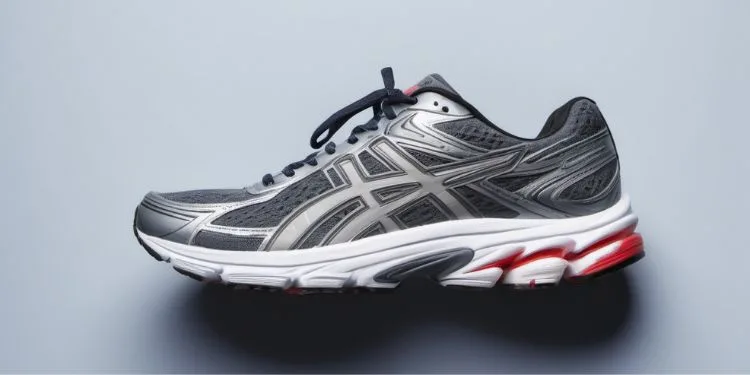
When enhancing cardiovascular health through jogging, choosing the correct shoes is crucial. The appropriate running shoes can improve your running experience, increase your cardio fitness, and lower your risk of developing heart disease. Running shoes explicitly created for cardiovascular advantages offer ideal stability, cushioning, and support to protect your joints while reducing the stress on your cardiovascular system. By selecting running footwear designed for cardio health, you can have a more comfortable and enjoyable run while benefiting your heart.
To understand the significance of selecting running shoes for cardio health, consider the following factors:
- Cushioning: Running shoes that offer adequate cushioning help absorb the impact on your joints and cardiovascular system, reducing the risk of injuries. Look for shoes with responsive midsoles and cushioned insoles.
- Stability: The right running shoes provide stability and support to maintain proper foot alignment during your run. This helps reduce the risk of injuries and ensures a more efficient and comfortable stride.
- Protection: Running shoes designed for cardio health protect your joints, minimizing stress and impact on your cardiovascular system. This can contribute to better long-term heart health.
By selecting running shoes tailored to improve cardio health, you can optimize your running performance while safeguarding your heart against potential risks. Choosing the right shoes is an investment in Cardiovascular Health: Boosting Heart Health Through Running.
| Benefits of Choosing the Right Running Shoes for Cardiovascular Health | Consequences of Incorrect Running Shoes for Cardiovascular Health |
|---|---|
| Improved cushioning reduces the impact on joints and cardiovascular system | Increased risk of joint pain and cardiovascular stress |
| Enhanced stability and support during running | Greater susceptibility to injuries and imbalances |
| Reduced pressure on the cardiovascular system | Elevated risk of heart-related diseases |
“Read more: Running Shoes Sole Repair: Restoring Footwear Integrity“
Factors to Consider When Choosing Cardiovascular Health Running Shoes
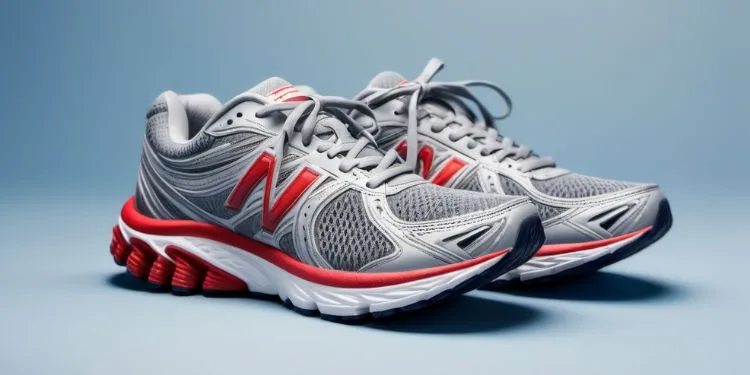
When choosing running shoes for cardiovascular health, various aspects must be considered. First, the shoes should have enough cushioning to absorb the pressure on your joints and cardiovascular system. Peek for running shoes with cushioned responsive midsoles to ensure optimal comfort and protection. This will help minimize the risk of injuries while maximizing the benefits of your cardio workout.
Secondly, stability and support are crucial for maintaining proper foot alignment during your run. Opt for running shoes with good stability features, such as reinforced midfoot structures and supportive heel counters. These elements help reduce excessive pronation or supination and promote a more efficient running gait.
Choose running shoes that fit well and leave enough room for your toes to avoid discomfort, blisters, and other foot ailments. The right fit is essential for a comfortable running experience and optimal foot function. It’s recommended that you visit a specialty running store, where expert staff can assist you in finding the best shoes for your unique foot structure and biomechanics.
Tips for Choosing Cardiovascular Health Running Shoes:
- Look for running shoes with adequate cushioning and support.
- Ensure the boots fit well and provide enough room for toe movement.
- Visit a specialty running store for expert advice and proper fitting.
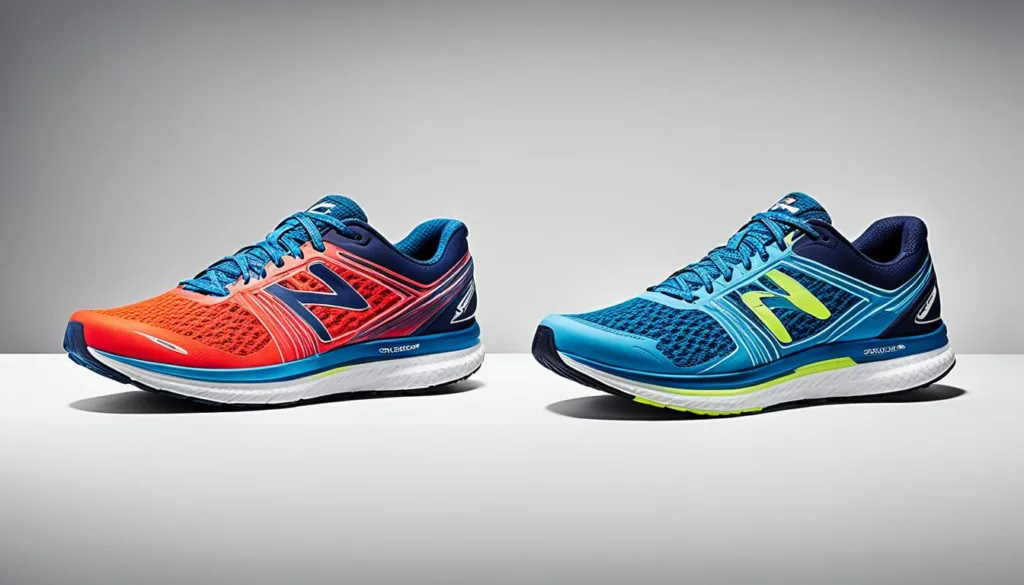
With the right cardiovascular health running shoes, you can enjoy a comfortable and injury-free running experience while reaping the benefits for your heart and overall well-being.
“Read more: Drying Running Shoes: Quick and Safe Methods“
Tips for Healthy Running and Injury Prevention
Following particular principles for good running and injury avoidance is critical to maintaining cardiovascular health when running. Incorporating these tips into your jogging regimen will help improve your heart health and lower your risk of injury.
Gradually increase your running distance and intensity
It’s essential to allow your body to adapt to running conditions by gradually increasing your distance and intensity. This helps prevent overuse injuries and allows your cardiovascular system to build endurance. Start with shorter distances and lower intensities, and gradually work your way up.
Incorporate strength training exercises.
Strength training exercises are essential for strengthening the muscles around joints, supplying additional support and stability during your runs. Focus on exercises that target your lower body, such as squats, lunges, and calf raises. Including strength training in your routine can help reduce the risk of injuries and improve your overall running performance.
Listen to your body and rest when needed.
Pay attention to any pain or discomfort during your runs. If you experience any unusual pain or discomfort, stop running and rest. Pushing through the pain can lead to further injuries and negatively impact your cardiovascular health. It’s essential to give your body time to recover and heal.
Ensure proper hydration
Staying adequately hydrated is crucial for supporting your cardiovascular function and preventing dehydration. Drink water before, during, and after your runs to replenish the fluids lost through sweating. Carry a water bottle with you or plan your route near water fountains to ensure easy access to hydration.
Wear Specialized Running Shoes for Heart Health
Choosing the right running shoes is essential for maintaining cardiovascular health and preventing injuries. Specialized running shoes designed for heart health provide optimal cushioning, support, and stability. These shoes are specifically engineered to minimize the impact on your cardiovascular system and protect your joints. Investing in high-quality running shoes can significantly improve your comfort and overall cardiovascular health.
| Benefits | Features |
|---|---|
| Enhanced shock absorption | Advanced cushioning technology reduces the impact on joints and the cardiovascular system. |
| Optimal stability | Supportive midsole and outsole design ensure proper foot alignment |
| Breathability | Mesh upper allows for improved airflow, keeping your feet cool and dry |
| Durability | High-quality materials and construction ensure long-lasting performance |
“Read more: Running Shoes Repair: Fixing Common Wear and Tear“
Warm-up and Cool-down Routines
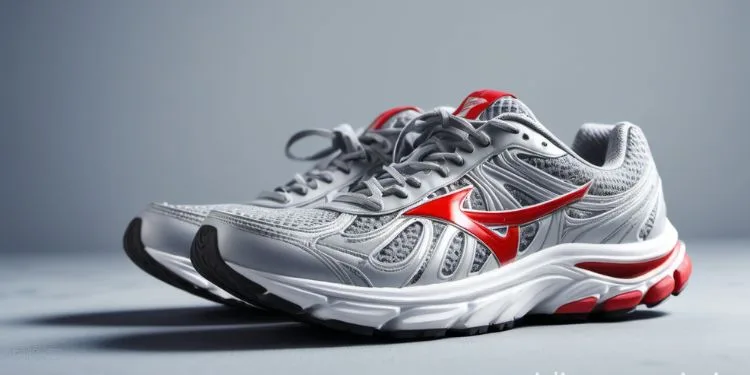
Before and after your running sessions, it’s crucial to incorporate warm-up and cool-down routines to optimize your cardiovascular health and prevent injuries. These routines help prepare your muscles and cardiovascular system for exercise, promote recovery, and minimize muscle soreness.
Start your warm-up with a speedy walk or faint jog for a few minutes. This will gradually increase your heart rate and warm up your muscles, making them more receptive to exercise. A proper warm-up is essential for preventing muscle strains and reducing the risk of injury.
Additionally, incorporating stretching exercises into your warm-up routine can improve flexibility and further prepare your muscles for the demands of running. Focus on stretching major muscle groups such as calves, hamstrings, quadriceps, and hip flexors. Hold each stretch for around 15 to 30 seconds without bouncing, and remember to breathe deeply and relax into each stretch.
After your run, cooling down properly is essential to reduce muscle soreness and aid recovery. A cool-down routine should consist of gentle exercises and stretching. Walking or slow jogging for a few minutes allows your heart rate and breathing to return to normal gradually. This helps prevent dizziness or fainting when abruptly stopping intense exercise.
Incorporating stretching exercises during your cool-down can be beneficial for releasing muscle tension, improving flexibility, and aiding in recovery. Focus on stretching all major muscle groups, holding each stretch for 15 to 30 seconds. This will help prevent tight muscles and stiffness after your run.

To ensure a comfortable and supportive warm-up and cool-down, it’s essential to wear running shoes that provide adequate support and cushioning. Look for running shoes specifically designed for cardiovascular health, as these will enhance your performance and reduce the risk of injuries during warm-up and cool-down exercises.
When choosing running shoes for your warm-up and cool-down routines, prioritize comfort and fit. Ensure that the boots offer sufficient cushioning to protect your feet and joints. Additionally, wear shoes with good arch support and stability to maintain proper foot alignment during exercise.
Remember, wearing comfortable running shoes that support your cardiovascular health enhances your warm-up and cool-down routines and contributes to a more enjoyable and injury-free running experience.
| Warm-up and Cool-down Routines | Benefits |
|---|---|
| A brisk walk or light jog | Gradually increases heart rate and warms up muscles |
| Stretching exercises | It improves flexibility and prevents muscle strains |
| Slow jog or walk after running | Allows heart rate and breathing to return to normal gradually |
| Stretching exercises after running | It enhances muscle recovery and prevents tightness |
“Read more: Running Shoes Waterproofing: Keeping Feet Dry“
The Role of Diet in Cardiovascular Health
Maintaining a balanced diet and choosing appropriate running shoes are critical for cardiovascular health. A well-balanced diet rich in fruits, vegetables, lean proteins, and healthy fats helps improve heart health and overall well-being. The Mediterranean diet is low in red meat but high in fish, fruits, vegetables, and olive oil and has been linked to considerable cardiovascular benefits. Further, runners should fuel their bodies with appropriate carbs before longer runs to maintain energy levels.
Proper nutrition plays a crucial role in maintaining optimal cardiovascular health. The food we consume directly affects our heart health and overall well-being. A healthy and balanced diet can support our cardiovascular system and enhance our running performance.
The Mediterranean Diet for Cardiovascular Health
The Mediterranean diet is renowned for its heart-healthy benefits. This diet primarily consists of fruits, vegetables, whole grains, legumes, nuts, olive oil, and lean proteins, with limited consumption of red meat and processed foods.
The critical components of the Mediterranean diet that contribute to cardiovascular health include:
- Incorporating plenty of fruits and vegetables high in fibre, vitamins, and antioxidants.
- Choosing whole grains over refined grains to maintain stable blood sugar levels and improve heart health.
- Consuming lean protein sources such as fish, poultry, and plant-based proteins.
- Including healthy fats from sources like olive oil, avocados, and nuts, which aid in reducing inflammation and maintaining healthy cholesterol levels.
A well-balanced Mediterranean diet supports cardiovascular health and provides essential nutrients for overall well-being and improved energy levels during running.
Carbohydrates and Energy Levels
Carbohydrates are an essential macronutrient for runners, as they provide a readily available energy source. Before longer runs, fueling your body with adequate carbohydrates is vital to maintain energy levels.
Whole-grain bread, pasta, rice, oats, and fruits are rich in carbohydrates. Incorporating these foods into your pre-run meals or snacks can help ensure you have sufficient energy for a successful run.
Finding the right balance of carbohydrates, protein, and fats in your diet is crucial for optimal cardiovascular health and running performance. Seek advice from a registered dietitian or sports nutritionist to tailor a nutrition plan that suits your specific needs and goals.
| Running Shoes for Cardiovascular Health | Diet for Cardiovascular Health |
|---|---|
| Maximize comfort and support | Provides essential nutrients |
| Reduce the risk of injuries | Supports heart health |
| Enhance cardiovascular fitness | Improves overall well-being |
| Optimal cushioning and stability | Aids in maintaining energy levels |
“Read more: Running Shoes Deodorizing: with 5 steps to remove smell shoes“
Hydration and Sleep for Cardiovascular Health
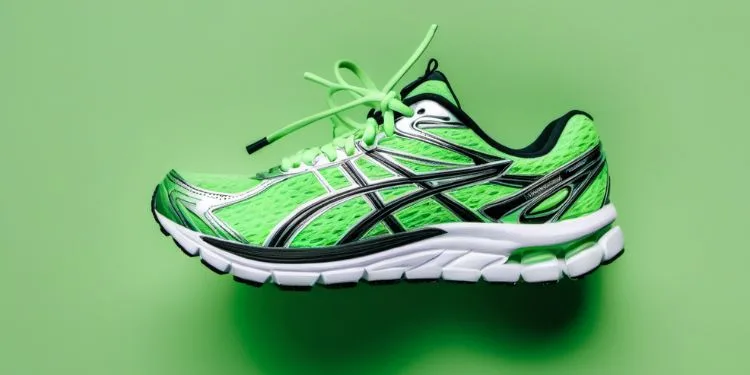
Hydration and sleep are critical factors in maintaining cardiovascular health, especially for runners. Proper hydration supports optimal cardiovascular function and helps prevent dehydration, particularly during longer runs. It’s essential to drink an adequate amount of electrolyte-rich fluids or water during, before and after your runs to replenish lost fluids and maintain proper hydration levels.
Adequate sleep is equally essential for your heart health. During sleep, your body repairs and regenerates, allowing your cardiovascular system to recover from the demands of running and promoting overall well-being. Sleeping helps regulate blood pressure, reduces stress, and improves heart function.
The Role of Hydration
Proper hydration is crucial for runners to support cardiovascular health. When you run, your body loses water through sweat, which can lead to dehydration if not replenished. Dehydration can strain your heart and compromise its ability to pump blood effectively. It can also increase the risk of heat-related illness and other complications.
Consume water or electrolyte-rich liquids before, during, or after your runs to stay hydrated. Aim to consume at least 8 to 10 glasses of water daily, and increase your intake when you have longer runs or run in hot weather. Electrolyte-rich drinks can help replace lost minerals and maintain the electrolyte balance in your body.
Everyone’s hydration needs may vary, so listening to your body’s signals and adjusting your fluid intake is essential. If you experience symptoms of dehydration such as dizziness, fatigue, or dark-coloured urine, increase your fluid intake and consider consulting a healthcare professional.
The Importance of Quality Sleep
Getting enough sleep is vital for your cardiovascular health. During sleep, your body repairs and renews cells, strengthens the immune system and balances hormone levels. It also lowers blood pressure and reduces inflammation, contributing to a healthy heart.
For runners, sleep plays an essential role in recovery and optimizing the benefits of running. It allows your muscles and cardiovascular system time to rest and repair, reducing the risk of overuse injuries and promoting overall performance.
Experts recommend that adults aim for 7 to 9 hours of sleep each night. Establish a consistent sleep schedule, create a relaxing bedtime routine, and build a sleep-friendly environment by keeping your bedroom cool, dark, and quiet. Avoid caffeine or stimulating activities close to bedtime, as they can interfere with sleep quality.
Wearing Comfortable Running Shoes for Better Sleep
Wearing comfortable running shoes can contribute to a good night’s sleep. When you have supportive and cushioned shoes designed explicitly for cardio health, your feet are adequately supported and protected during your runs, reducing the risk of discomfort and conditions like plantar fasciitis. This can help alleviate foot and leg pain that may disrupt your sleep.
Choose running shoes that provide adequate cushioning and support for your foot type and running style. Consider visiting a specialty running store or consulting with a professional shoe fitter to ensure you find the right shoes that fit well and meet your needs.
Remember, a good night’s sleep enhances your overall well-being and supports optimal heart health. Combine proper hydration, quality sleep, and comfortable running shoes to maintain cardiovascular health while pursuing your running goals.
“Read more: Running Shoes Material Care: Preserving Appearance“
The Benefits of Running for Cardiovascular Health

Running regularly has several cardiovascular health benefits. According to studies, people who run regularly, even at low-to-moderate intensity, have a lower risk of dying from heart disease and stroke. Running increases cardiovascular fitness, decreases blood pressure, lowers cholesterol, and improves overall heart function.
Wearing the correct running shoes built for cardiovascular health allows you to optimize the benefits of jogging and improve your heart health. Running shoes are recommended for cardiovascular health because they provide ideal cushioning, stability, and support, protecting your joints and reducing the chance of injury. These specialized running shoes help to absorb the impact on your cardiovascular system and maintain proper foot alignment during your runs.
Investing in running shoes for heart health is a wise choice for individuals looking to enhance their cardiovascular fitness. Whether you are a beginner or an experienced runner, finding the right running shoes will make a noticeable difference in your overall running experience. So, lace up your running shoes tailored for cardiovascular health, hit the pavement, and start reaping the incredible benefits for your heart and well-being.
“Read more: Running Shoes for Orthopedic Needs: Customized Fit and Comfort“
Heart-Healthy Running: Shoes and Routines
When running for cardiovascular health, selecting the right running shoes is crucial. The right shoes can improve your overall running experience, enhance your cardio fitness level, and reduce the risk of heart-related diseases. Running shoes designed for cardiovascular benefits provide optimal cushioning, stability, and support to protect your joints and reduce the impact on your cardiovascular system. By choosing running footwear specifically tailored for cardio health, you can experience a more comfortable and enjoyable run while reaping the benefits for your heart.
Regular running has numerous benefits for cardiovascular health. Studies have shown that individuals who engage in regular running, even at low-to-moderate levels, have a lower risk of death from heart disease and stroke. Running helps improve cardiovascular fitness, lowers blood pressure, reduces cholesterol levels, and enhances overall heart function. By wearing the right running shoes specifically designed for cardiovascular health, you can maximize the benefits of running and improve your heart health.
Before and after running, it’s essential to include warm-up and cool-down routines. A brisk walk or light jog for a few minutes can warm up your muscles and prepare your cardiovascular system for exercise. Stretching exercises can also be beneficial to improve flexibility and prevent muscle strains. Similarly, a cool-down routine of gentle exercises and stretching after your run can help minimise muscle soreness and promote recovery. Wear comfortable running shoes that provide adequate support and cushioning during warm-up and cool-down routines.
“Read more: Running Shoes for Achilles Tendonitis: Enhanced Support for Your Achilles“
Cardiovascular Health: Running Tips and Shoe Essentials
Following specific guidelines for healthy running and injury prevention is essential to maintain cardiovascular health while running. Gradually increase your running distance and intensity, allowing your body to adapt to the demands of running and reducing the risk of overuse injuries. Incorporate strength training exercises to strengthen the muscles around your joints, providing additional support and lowering the risk of injuries. It’s also important to listen to your body and rest when needed. Stop to prevent further injury if you experience pain or discomfort during a run. Lastly, ensure proper hydration during your runs to support cardiovascular function and avoid dehydration.
Maintaining a healthy diet and wearing the right running shoes are essential for cardiovascular health. A balanced diet with plenty of fruits, vegetables, lean proteins, and healthy fats can support heart health and well-being. The Mediterranean diet, which is low in red meat and high in fish, fruits, vegetables, and olive oil, has been shown to have significant cardiovascular benefits. Additionally, runners must fuel their bodies with adequate carbohydrates before longer runs to maintain energy levels.
Hydration and sleep play crucial roles in maintaining cardiovascular health for runners. Proper hydration is essential to support cardiovascular function and prevent dehydration, especially during longer runs. Drinking water or electrolyte-rich fluids before, during, and after your runs is critical. Additionally, getting enough sleep is vital for recovery and overall heart health. Sleep allows your body to repair and regenerate, enhancing the benefits of running. Wearing comfortable running shoes can also contribute to a good night’s sleep by providing proper support and cushioning during your runs.
Conclusion
“Running Shoes for Cardiovascular Health” is not just a title but a testament to the transformative power of running. The right pair of running shoes, chosen according to expert podiatrist recommendations, can significantly improve cardiovascular health. Whether you’re a long-distance runner or just starting a running program, the benefits of running are undeniable.
The best running shoes of 2023 offer ample cushioning, arch support, and shock absorption, reducing the risk of injury and enhancing your running experience. They cater to different foot types, from high arches to flat feet, and are designed with breathable materials for comfort.
Everyone’s budget differs, so we included many price points in our roundup of the best running shoes. So, consider our expert’s recommendations and visit your local running store. Whether you’re focused on shoes that provide a cushioned forefoot for long-distance running or a breathable mesh upper for those whose feet get hot, there’s a perfect pair of running shoes waiting for you.
In conclusion, running shoes for cardiovascular health are more than footwear—they’re a step towards a healthier heart and a better life. So, lace up and start running towards improved cardiovascular health today.



















